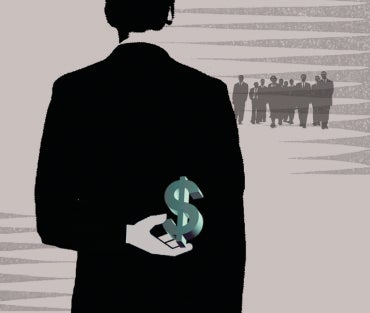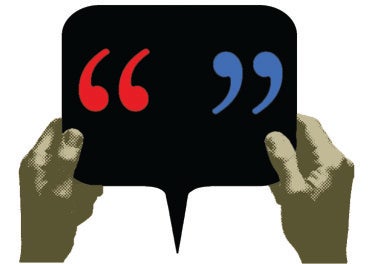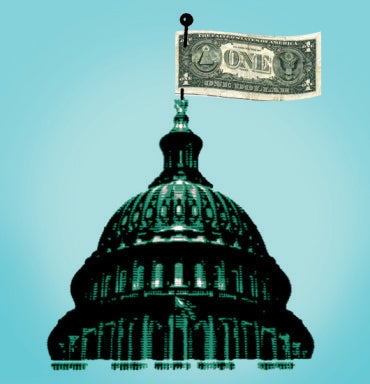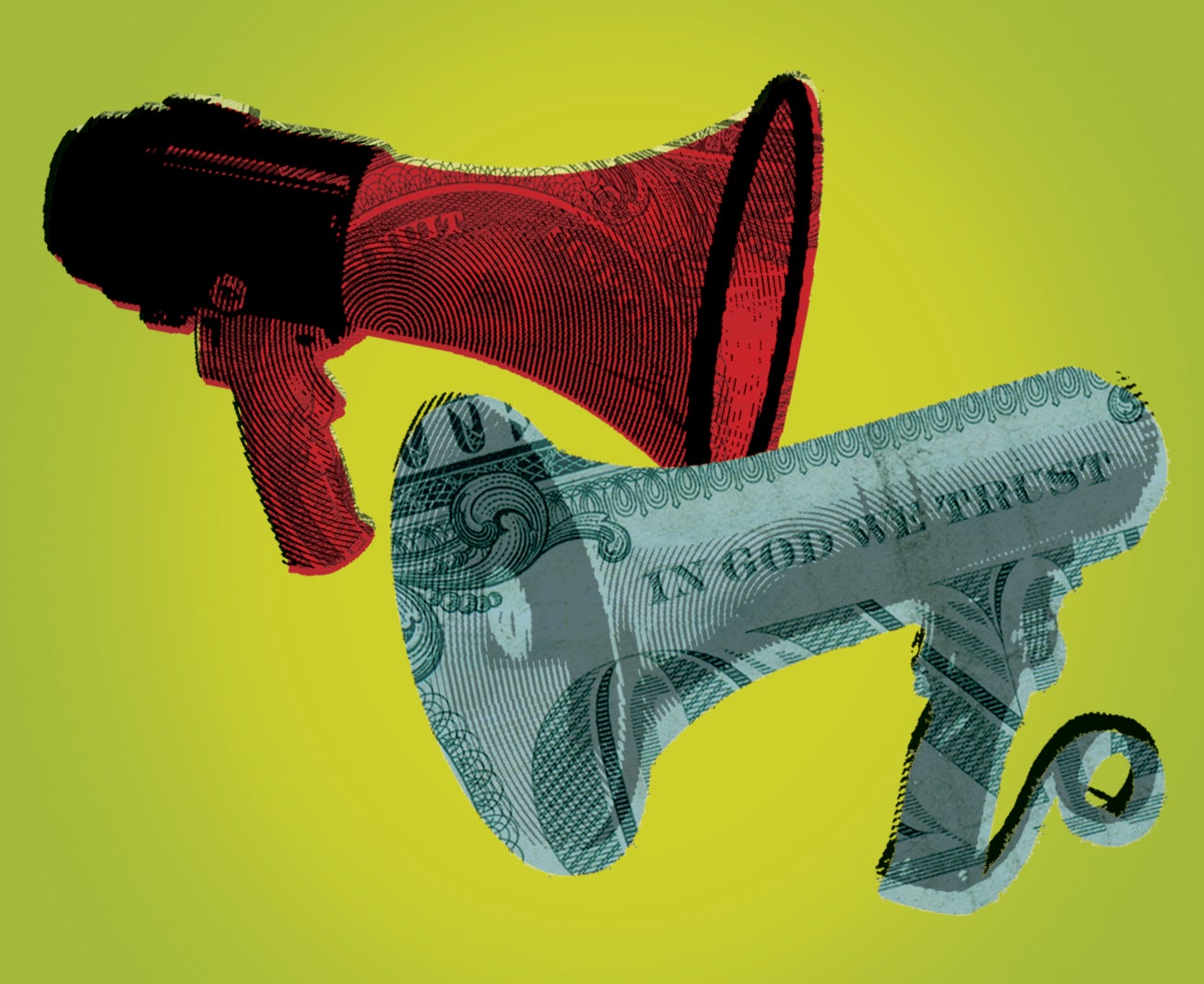Exploring the controversial decision’s effect on a wide spectrum of stake holders
The Supreme Court’s 2010 Citizens United decision allowed unlimited political expenditures by corporations and unions, which have been used to help fund campaign commercials that have flooded the airwaves during this election season. Not every aspect of the decision is so visible, however. In recent writings, several Harvard Law faculty members have explored how Citizens United affects a spectrum of stakeholders, including shareholders, corporations, unions and voters.
In his article “Unions, Corporations, and Political Opt-Out Rights After Citizens United,” Assistant Professor Benjamin Sachs exposes one overlooked consequence of the decision. He writes that while campaign finance law treats corporations and unions equally as far as political spending, labor law permits union members to opt out of funding union political activity while no such right exists for shareholders.
The most common argument for this asymmetry, says Sachs, is that union workers are compelled to fund political speech while shareholders aren’t compelled to fund corporate political speech. But, he writes, “both employment and investment constitute significant economic opportunities in the contemporary American economic order, and … large percentages of the public depend for income on both.” He suggests that legislative intervention to provide opt-out rights to shareholders would remedy the asymmetry and would ensure that shareholders do not have to endure the cost of being shut out of the market if they object to political expenditures. He also contends that the asymmetry may raise a constitutional difficulty by treating political speakers differently without justification, favoring corporations over unions—an even bigger issue when unlimited money is involved, he says.
“As unions spend more member money, members may well decide to exercise their opt-out rights, and shareholders would have no right to do that,” Sachs says.

Professor John Coates wants shareholders to know about and have control over how their investments are spent on political expenditures. In a paper titled “Fulfilling Kennedy’s Promise: Why the SEC Should Mandate Disclosure of Corporate Political Activity” (co-written with Taylor Lincoln of Public Citizen), he writes that the sources for about half the money spent in the first election cycle after Citizens United were kept secret, even though the majority opinion in the case was premised on the expectation that corporations would disclose expenditures. In addition to recommending mandatory disclosure, he argues that investors should have a right to vote on a proposal for a company to seek shareholder approval for any political spending.
“I think the [Citizens United] decision does have unique effects for public companies,” Coates says. “We all own those public companies, through index funds and the like.”
His research shows that disclosure would not harm corporate value. Indeed, he has found that companies that voluntarily disclose have higher valuations than similar companies that do not. “Most likely, managers who are making good decisions about spending money and are confident about it are happy for disclosure because they’re happy to explain what they’re doing,” says Coates.

Also related to corporate political expenditures is an article by Professor Lucian Bebchuk LL.M. ’80 S.J.D. ’84 (co-written with Columbia Law School Associate Professor Robert Jackson ’05) titled “Corporate Political Speech: Who Decides?” Currently, corporate political speech is subject to the same rules as ordinary business decisions. But Bebchuk writes that, unlike in typical business decisions, “the interests of directors and executives with respect to political speech decisions may diverge from those of shareholders, … and that the costs of the divergence of interests may be exacerbated by the special expressive significance that these decisions carry for shareholders.”
With the Citizens United decision expanding the scope of constitutionally protected corporate speech, designing special rules for that speech becomes more important, Bebchuk writes. In addition to mandating disclosure, he proposes that lawmakers adopt rules that would grant shareholders the right to decide on the amount and target of political spending and have independent directors oversee speech decisions. While benefiting shareholders, such rules would not limit corporations’ speech rights but would serve “as a method of determining whether the corporation actually wishes to engage in political speech,” he writes. “Thus, these rules protect, rather than abridge, corporations’ First Amendment interests.”

Professor Lawrence Lessig writes about Citizens United in his new book“Republic, Lost: How Money Corrupts Congress—and a Plan to Stop It,”in which he calls for sweeping campaign finance reform. While agreeing that the group Citizens United had a right to practice political speech with its own funds, he says, “I think the case is wrong from the standpoint of the precedent it establishes that Congress can’t be regulating at all, even if it’s right that this particular company Congress shouldn’t have had the power to regulate.”
The case, Lessig says, has exacerbated the corruption of the political system, which he defines as not bribery but a process dependent on raising money: “I think it’s reinforcing what people already thought, which is, This is a system where money buys results.” He adds that citizen disengagement increases when extreme sums of money influence the political process, and with Citizens United, that problem has only gotten worse.
